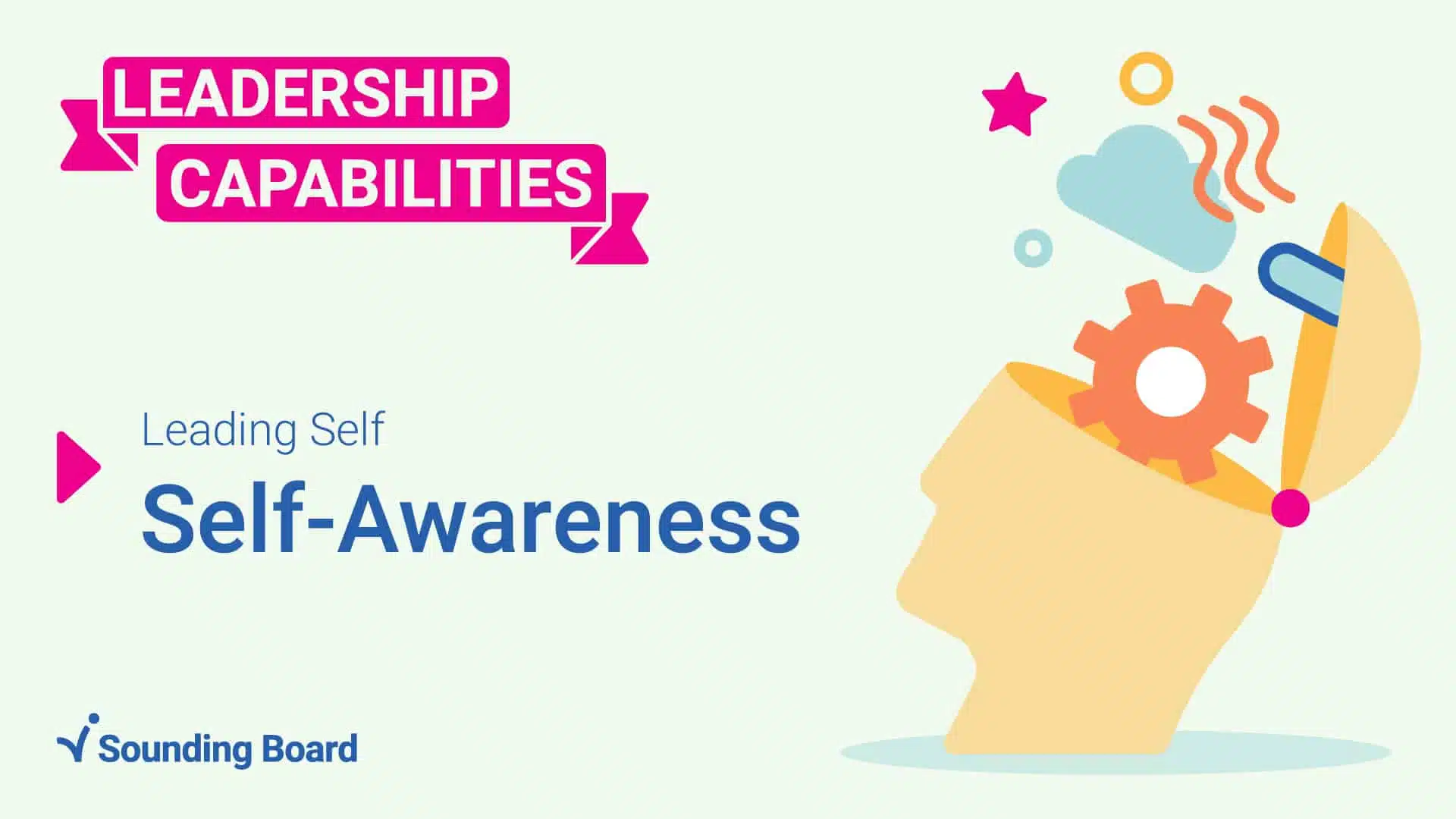This is the first of a 16-part series focused on what capabilities make a strong leader. Sounding Board has identified 16 leadership capabilities that the strongest leaders possess. These were developed from research-backed leadership theories, leadership competencies used for evaluation from top business schools, and 25+ years of practical coaching application.
The world is in a constant state of change and disruption, thanks to a deluge of technological advancements and the ever-increasing connectivity of the population. With the business world demanding that organizations move faster than ever to keep up, strong leaders must martial their skills and efforts at all levels. How can organizations ensure that they are developing a diverse slate of leaders to lead in an uncertain but dynamic future?
For one, it is important to nurture certain leadership capabilities such as humility, confidence, and collaboration. However, one attribute stands out among the most important when it comes to strong leadership: self-awareness. Why is this a great place to start? To grow and develop, leaders must have the skills to understand themselves well enough to correctly assess where they are currently as well as where they strive to be. Once leaders can identify their own strengths and weaknesses, they can more effectively apply the former and minimize the latter for organizational and professional gain.
While this may seem straightforward, there are a fair number of nuances around why this trait is so important that impact how it can be nurtured in both leaders and in their teams. In this article we’ll explore why self-awareness is such a pivotal attribute in strong leaders, how it benefits an organization, and how it can be nurtured in almost anyone with leadership coaching.
What is Self-Awareness in Leadership?
Self-awareness can be broken down into two primary categories, internal and external. Internal self-awareness is focused on how well we understand our own values, motivations, how we fit into our environment, and our impact on others. External self-awareness focuses on these same items, but from others’ perspective – how others perceive our values, motivations, belonging, and impact. For leaders, it’s important to strike a balance and understand both sides, which means authentically representing who they are and how they impact others while also understanding how they are received.
Why is this so important? Successful leaders know how to leverage their natural inclinations that are helpful, and how to strengthen those that are weaker. Thus, self-aware leaders can accept their shortcomings and strengths and work with that knowledge to better themselves and increase their impact on an organization.
The Characteristics of a Self-Aware Leader
Manages their reactions and perceptions
Self-aware leaders are critically reflective about their biases, work to overcome them, and actively adjust their behavior where necessary. They pause to reflect on their reactions before sharing them with others. These leaders practice emotional restraint, and they communicate clearly and fairly.
Understands impact on others and manages the perception created
Intent and impact do not necessarily align. Self-aware leaders understand how they are being received, and adjust their actions appropriately. They are cognizant of the impact of their actions on others, and they actively work to create a comfortable, productive work environment.
Manages self
Self-aware leaders own the responsibility of managing themselves. This includes their emotions, landscape, physical well-being, and work-life balance. Rather than placing the onus on their circumstances or coworkers, these leaders understand that they alone are responsible for how they react and interact.
Demonstrates awareness of their leadership style
Successful leaders demonstrate an awareness of their own style, leadership approach, behavior patterns, strengths, and weaknesses. When a leader clearly knows their approach, they can clearly and more effectively communicate expectations to their team. Not only does this clarity create an efficient dynamic, it also encourages other members of the team to develop their own self-awareness.
How Leaders Can Encourage Self-Awareness in Themselves and Others
The good news is that self-awareness is not a trait you must be born with. There are many exercises and opportunities for leaders to build this skill in themselves and encourage growth in those around them, and leadership coaching can enable this development.
Here are some tactics that leaders can employ organizationally to improve self-awareness:
Identify patterns of behavior
Leaders must first identify their patterns before they can act to improve them. Focus on paying attention to the circumstances that cause reactions, and then work backwards to identify the trigger point. From there, leaders can choose to alter their behavior. Further, leaders can encourage this skill in their employees both directly through providing detailed feedback and indirectly by encouraging introspection.
Get feedback from others
Finding people who will give honest feedback is a great way to learn more about others’ perceptions. Leaders can start by requesting insight from their own managers and peers as well as from their direct reports. It’s important to hear others’ opinions – at all levels – and incorporate this knowledge into understanding how they are perceived.
Create and enact meaningful solutions for growth
Once leaders are more cognizant of their behaviors and how others perceive them, they can work to change or improve them. Remember that changes don’t happen overnight. Leaders can effectively alter their behavior and increase their self-awareness by making small, meaningful habit changes over time to expand and elevate their successes.
Encourage these tactics in others
In addition to working on themselves, leaders can also encourage their teams to cultivate more self-awareness. It makes sense to offer leadership coaching for as many members of the established and emerging leadership team and pipeline as possible. An emphasis on self-awareness across an organization leads to greater efficiencies, enhanced performance, and the ability to make better decisions.
Start Now
Self-awareness is an important facet of good leadership. With leadership coaching, this is a skill that can be built and enhanced throughout a leader’s career.
Not sure where to start? The team at Sounding Board has you covered. Our network of certified coaches are highly trained in leadership development and can offer personalized solutions to help your business thrive. For more information, reach out to our team. We will help you understand the value of our specialized coaches for your organization, and help you get started today.











